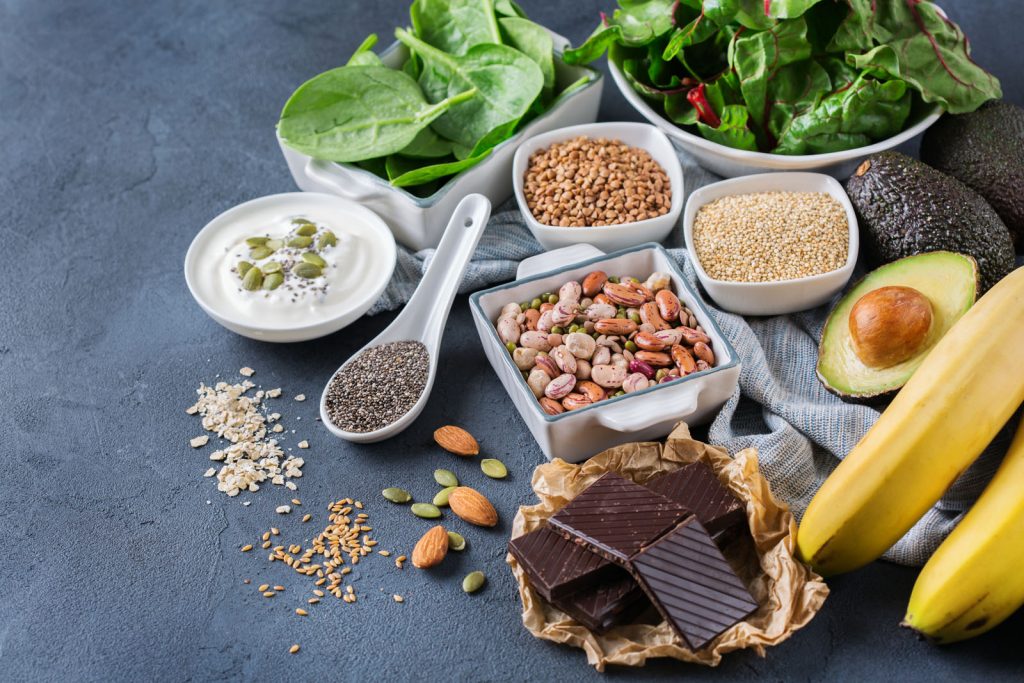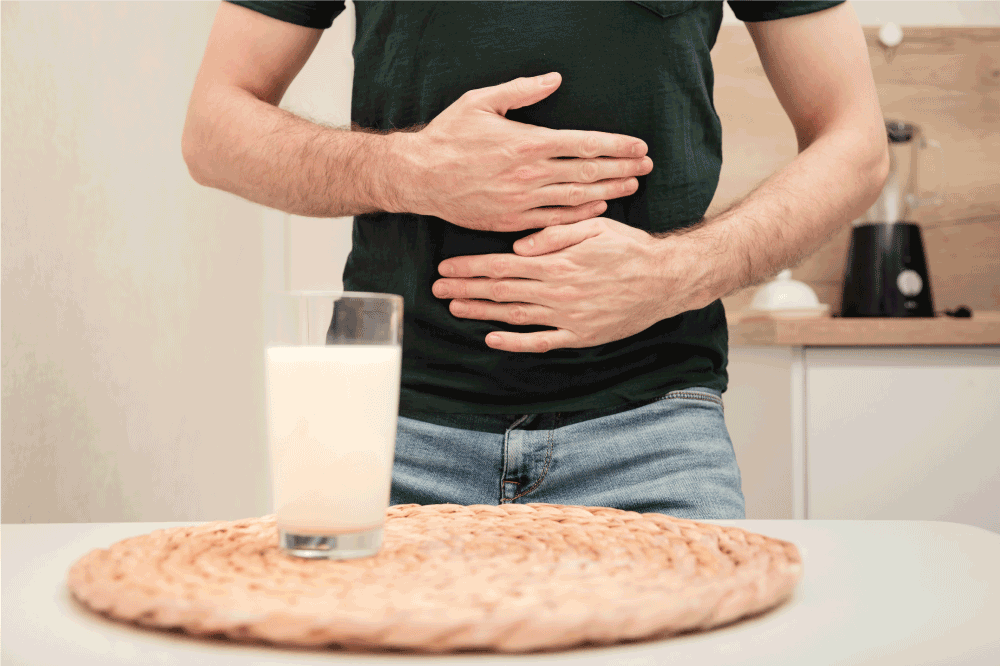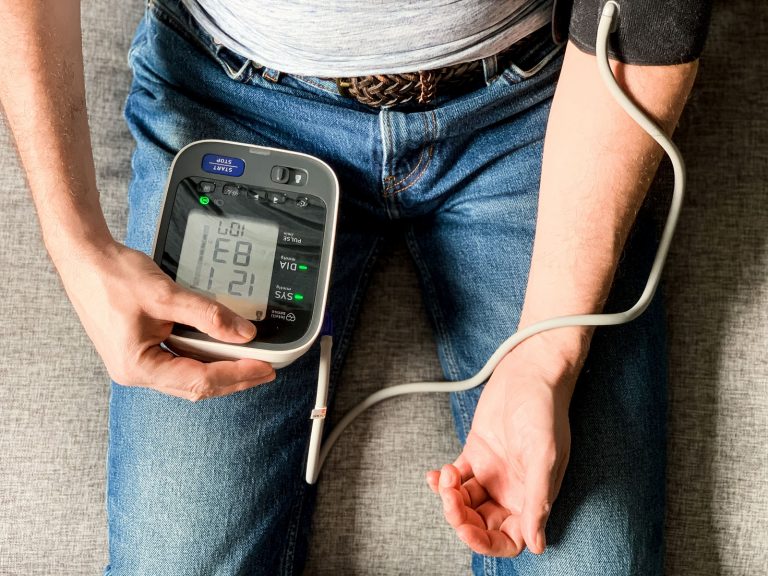Are you a guy struggling with anxiety? Support your mental health and find relief from stress with our practitioners tips for reducing anxiety naturally.
Reduce Anxiety Naturally: Tips for a Calmer Mind

Key Takeaways
- Anxiety is common in men, but societal pressures often discourage them from seeking help.
- The fight-or-flight response can become overactive, leading to chronic stress and health issues.
- Nutrients like magnesium, zinc, and B vitamins play crucial roles in reducing anxiety and supporting brain function.
- Herbal remedies such as withania, lemon balm, lavender, and skullcap have been scientifically studied for their calming effects.
- L-theanine from green tea can promote relaxation and reduce cortisol levels.
- Omega-3 fatty acids and beta-glucans support brain health and mood stability.
- Diet, lifestyle changes, and targeted supplementation can help manage anxiety naturally.
Introduction
Anxiety is not just a psychological issue- it has deep-rooted connections to nutritional imbalances, and can contribute to the development of other health conditions. Deficiencies in essential nutrients like magnesium, zinc, and B vitamins can impair neurotransmitter function, disrupt the body’s stress response, and contribute to feelings of anxiety. Men face the added burden of societal expectations around their roles in the family and at work, and this often leads to neglect around mental health. Pyschological support can be effective, but I strongly believe in the importance of addressing underlying nutrient deficiencies and incorporating herbal support to ensure optimal cognitive balance. In this article, we explore evidence-based nutritional and herbal interventions that help regulate stress hormones, balance neurotransmitters, and promote mental well-being.
Understanding Anxiety in Australian Men
Anxiety can affect anyone, but men often face unique challenges when it comes to mental health. Cultural expectations and societal norms frequently discourage men from expressing vulnerability, making it harder to talk about their struggles or seek help. Many men associate anxiety with weakness, yet anxiety disorders are the most common mental health condition among boys, and Australian men continue to account for over 75% of suicide deaths.
Men often normalise anxiety as being just part of every day life, or fail to identify the symptoms of anxiety. Men also tend to experience and express anxiety differently from women. Instead of showing obvious distress, they may mask their struggles with anger, irritability, or substance use. The pressure to be a provider, protector, and pillar of strength can create chronic stress, affecting every aspect of life, from work to relationships. Providing support to men where they feel comfortable talking honestly about their mental health and supporting anxiety with nutrients and herbs is a key part of The Health Mechanic practice.
What Is Anxiety?
Have you heard of the fight or flight mechanism? Our bodies are programmed to survive. When you feel threatened or stressed, your body releases stress hormones like cortisol, adrenaline and noradrenalin. These hormones are great for getting you ready to deal with immediate dangers, but for men with anxiety this system gets stuck in overdrive which leaves you feeling on edge all the time. This constant flood of stress hormones can make you feel tired, restless, and irritable- like you’re always on high alert.
On top of that, certain chemicals in your brain, called neurotransmitters, play a big role in mood. Serotonin and GABA are neurotransmitters that help you feel calm and relaxed, but when their levels are low anxiety can skyrocket. Neurotransmitter imbalances can also increase the risk of developing depression and other mental health challenges.
These hormones and neurotransmitters are part of the hypothalamic-pituitary-adrenal axis (HPA-A). When this is dysregulated long term, it can mess with the function of your entire body including your heart, immune system, digestion, and reproductive hormones and fertility. Reproduction isn’t considered a priority by your body when stress hormones are high!

Symptoms and Triggers of Anxiety
Anxiety can manifest in various forms, including Generalized Anxiety Disorder (GAD), panic disorder, and social anxiety. While its effects are often psychological, anxiety also has significant physical symptoms, such as a racing heart, muscle tension, and sleep disturbances.
Triggers vary from person to person but can include excessive caffeine or alcohol consumption, exposure to distressing news or social media, and poor sleep habits. Identifying and managing your own personal triggers is essential to reducing anxiety. Recognising these factors can help individuals take proactive steps toward better mental health.
Incorporating regular exercise, a balanced diet, and a consistent sleep routine can significantly alleviate anxiety symptoms and enhance overall quality of life. Small, sustainable lifestyle changes often make a profound difference in managing anxiety effectively.

The Role of Natural Remedies in Managing Anxiety
Plants contain a wide range of phytochemicals that research has shown to be effective in supporting mental well-being. Just as anxiety manifests differently for each person, herbs and nutrients work through various mechanisms and are not a one-size-fits-all solution. Some nutrients play a crucial role in keeping mood stable and balanced, while deficiencies in key vitamins and minerals can negatively impact brain function, contributing to anxiety and mood imbalances. Nourishing your body with the right nutrients is a simple yet powerful way to support mental health.
Natural health practitioners can prescribe herbal and dietary supplements and recommend lifestyle changes to manage anxiety. We aim to help you identify triggers, and provide support for your nervous system and body- which is heavily taxed when it’s working overtime! A qualified healthcare provider can ensure the supplement is suited to you, and is not contraindicated with any exisiting health condition or medication before adding them to your treatment plan.
Nutrients for Anxiety- Magnesium, Zinc, and B Vitamins
Magnesium plays a critical role in calming the nervous system. It helps regulate neurotransmitters, the chemicals in your brain that send signals between nerve cells. When you’re low on magnesium, it can lead to increased anxiety, restlessness, and sleep deprivation. Studies show magnesium supplementation can improve symptoms of insomnia including sleep onset and total sleep time, and also reduce waking during the night. Magnesium also improves concentration, increases melatonin and reduces serum cortisol.
There are several types of magnesium, each with different benefits, so it’s important to choose the right one for your needs. For example, magnesium glycinate is great for anxiety and insomnia, while magnesium citrate is often used for digestive support.
Zinc is another important nutrient for managing anxiety. Research shows low zinc levels are linked to increased anxiety and depression. This mineral is crucial for brain function and helps regulate how our neurons signal. Zinc plays a key role in neurotransmitter activity, particularly in balancing levels of GABA (which calms the brain and prevents overstimulation), and the excitory brain chemical glutamate. Studies show that taking zinc might help lessen anxiety symptoms.
Research also shows low levels of B vitamins can contribute to mood swings and anxiety. Vitamin B6 is crucial for mental health. This vitamin is shown to help produce and regulate neurotransmitters like serotonin and GABA, which reduce anxiety symptoms. Deficiency of another b-vitamin cobalamin (also known as B12) is associated with depression, anxiety, psychosis, apathy, agitation, impaired concentration and insomnia.
L-Theanine: A Supplement for Relaxation and Focus
L-theanine is a derivative from green tea. This amino acid increases alpha brain wave activity. These waves are linked to a calm and alert feeling. L-theanine works by changing the levels of chemicals in our brains called neurotransmitters (specifically dopamine and serotonin), which play big roles in mood regulation.
L-theanine is also clinically useful due to its ability to reduce cortisol. Studies show that levels of cortisol in stressed humans decline for up to 3 hours after administration of l-theanine. This helps to rebalance the HPA-axis and reduce the physiological impact of stress on our bodies.
Herbs For Anxiety
Herbal medicine has long been used to support mental well-being, and modern research continues to validate the effectiveness of certain herbs in managing anxiety. While many herbal supplements offer natural stress relief, I need to highlight again the importance of using them under guidance from a qualified healthcare provider- particularly if you are managing existing health conditions and medications. Evidence-based herbal medicine ensures that the right herbs are selected for your specific needs, you are given the correct therapeutic dose and interactions are considered.
Here are some of my favourite evidence-backed herbs for reducing stress and promoting relaxation.
Withania: An Adaptogen for Stress Relief
Clinical trials show Withania somnifera can significantly reduce stress levels, and improve memory and attention, sleep quality, and overall psychological well-being. It is known as an adaptogen, which are herbs traditionally used to support resistance to stress.
A recent study shows that Withania reduces cortisol in stressful situations, making it a valuable tool for supporting HPA-axis dysfunction and anxiety.
Melissa officinalis: A Herb to Increase GABA
Melissa officinalis, also known as lemon balm, has been used for centuries to help calm the mind. Studies show that Melissa can increase levels of serotonin and dopamine, and support levels of GABA, which helps reduce feelings of tension and increase mental wellbeing. Melissa is also excellent for issues around sleep, which is often disrupted when anxiety is high.
Lavender and Skullcap: Anti-Anxiety Supplements
Lavender or Lavandula augustifolia is something we assume only old ladies use, but it’s an amazing herb which is proven to reduce anxiety and improve sleep quality. Lavender can increase slow-wave sleep, slow heartbeat, reduce blood pressure and relax muscles. Those old ladies know what they’re on about!
Another stress-reducing herb that I am big fan of is Skullcap or Scutellaria lateriflora. Skullcap contains the amino acid glutamine, which provides both sedative and anti-anxiety effects. It increases the activity of GABA, and helps promote relaxation. It is believed the compounds in skullcap act as gamma amino butyric acid agonists, similar to benzodiazepines prescribed by doctors.

Food as Medicine: Nutrition for Mental Health
The foods we eat play a vital role in brain function, mood regulation, and anxiety management. A nutrient-rich diet provides the foundation for mental well-being, supporting neurotransmitter production and reducing stress-related imbalances. While supplements can be valuable for filling nutritional gaps, whole foods offer a synergy of vitamins, minerals, and co-factors that enhance their effectiveness.
By addressing dietary deficiencies and prioritising nutrient-dense foods, we can support optimal brain health and emotional health. Below are some key nutrients essential I think are key for mental well-being.
The Role of Omega-3 Fatty Acids and Beta-Glucans
Omega-3 fatty acids (like EPA and DHA) are crucial for brain function. Omega 3’s help reduce inflammation, boost mood, and improve cognition. They are found in fatty fish like salmon, as well as in flaxseeds and walnuts, omega-3s help support neurotransmitter function, which can help lower stress responses. Studies have shown that people who get enough omega-3s tend to have a better mood and less anxiety.
Beta-glucans are a kind of soluble fiber found in oats, barley, and mushrooms. They can enhance brain function and help reduce anxiety symptoms. Research has established supplementation with beta-glucans can improve physical energy, mental sharpness, and mood.
Including dietary foods and supplements that are rich in omega-3 fatty acids and beta-glucans in your daily routine can help support your mental health and improve overall well-being.

Integrating Anxiety-Reducing Foods into Your Diet
Using food as medicine in your diet is an easy way to support mental well-being. Nutrient deficiencies can contribute to imbalances in neurotransmitters, increasing susceptibility to anxiety. By incorporating foods rich in essential vitamins, minerals, and healthy fats, you can help regulate stress responses and improve overall health.
Here are some nutrient-dense options to include in your meals:
- Fatty fish (salmon, tuna, mackerel) – High in omega-3 fatty acids, which support brain function and reduce inflammation linked to anxiety.
- Nuts and seeds (walnuts, chia seeds, flaxseeds) – Excellent sources of omega-3s and magnesium, both essential for nervous system regulation.
- Whole grains (oats, quinoa, brown rice) – Provide beta-glucans and B vitamins, which help stabilise mood and support energy production.
- Leafy greens and colourful fruits (spinach, berries, avocados) – Rich in magnesium, antioxidants, and polyphenols that protect brain cells from oxidative stress.
Stress Reduction Strategies for Anxiety Management
Making changes to your lifestyle is a crucial part of good mental health and anxiety relief. The key is to take small, consistent steps toward change. Seeking support from a personal trainer, health coach, or even a friend can provide accountability and help you stay on track.
Exercise is a powerful, natural way to ease anxiety. It releases endorphins that elevate mood, lowers stress hormones, improves sleep quality, and enhances brain function—all of which contribute to a calmer, more balanced mind. Relaxation techniques like deep breathing exercises, mindfulness and meditation are also great ways to help calm your mind. Research has shown that both physical activity and meditation can be equally effective in reducing anxiety.
Whether it’s high-intensity workouts or gentler activities like yoga and walking, the best form of exercise is the one you enjoy and can maintain. Find ways to incorporate movement into your daily routine, experiment with different activities, and focus on consistency. Over time, regular physical activity can lead to lasting improvements in both mental and physical well-being.

Healthcare for Anxiety
Natural remedies and lifestyle changes can be powerful tools for managing stress and anxiety, but it’s equally important to recognise when other professional support is needed. If your anxiety feels overwhelming and is affecting your daily life, relationships, or work, it’s vital to reach out to a qualified mental health professional to discuss treatment options.
- If you are experiencing any of the following symptoms, please reach out to someone: Persistent and excessive worry that disrupts your daily life.
- Panic attacks, which may involve sudden intense fear along with physical symptoms like increased heart rate, chest pain, or dizziness.
- Avoiding social situations, work, or activities due to anxiety.
Seeking help for anxiety is simply part of taking care of your health- just as you would if you had high cholesterol or a dislocated elbow! There are many skilled and compassionate practitioners who are dedicated to helping people overcome anxiety and improve their quality of life. You don’t have to go through it alone- support is available, and you deserve to feel your best.
Conclusion
Managing anxiety requires a multifaceted approach that acknowledges the interplay between brain chemistry, stress response, and lifestyle factors. Nutrients like magnesium, zinc, and B vitamins, along with herbal remedies such as Withania and Melissa, provide powerful tools for naturally supporting mental health. By making strategic dietary choices, incorporating stress management techniques, and seeking professional guidance when needed, men can take control of their anxiety and enhance their overall well-being. Addressing anxiety is not about eliminating stress, but about building resilience and supporting your body’s ability to adapt and thrive.
Frequently Asked Questions
Can dietary changes significantly improve anxiety symptoms?
Yes, changing your diet can be a valuable part of anxiety treatment. Eating foods rich in magnesium, B vitamins, and omega-3 fatty acids can make your brain healthier. This, in turn, may reduce anxiety symptoms and improve sleep quality.
How do I know which herb is right for my anxiety?
It is a good idea to talk to a healthcare professional who knows about herbal remedies. Chamomile, lemon balm and lavender are commonly used natural anxiety remedies, but every person is different and requires individual consideration.
Are there any risks associated with using natural remedies for anxiety?
Natural remedies are usually safe, but they can still cause side effects and may interact with your medications. It’s important to do good research. Start with low doses and talk to a functional medicine practitioner or naturopath who is professionally trained to prescribes these supplements.












